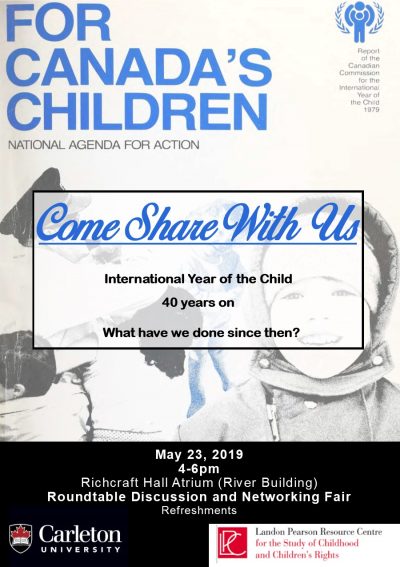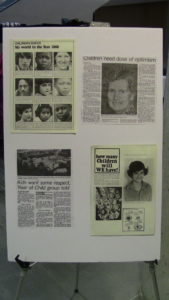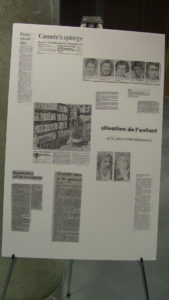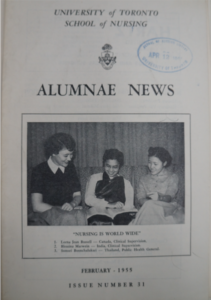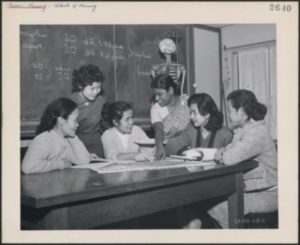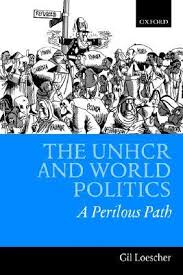By Sandrine Murray
- On the occasion of the celebrations of 40th anniversary of the Year of the Child, the Canadian Network on Humanitarian History used the archives of the Landon Pearson Resources Centre for the Study of Children and Children’s Rights (LPC) to prepare an exhibition on the report.
The United Nations proclaimed 1979 the International Year of the Child (IYC). Back then, television was the technology of the day, colour broadcasting introduced only a few years prior. No one could predict the arrival or impact of social media on children decades later. But how they viewed children’s rights at the time set a standard for today. Continue reading

